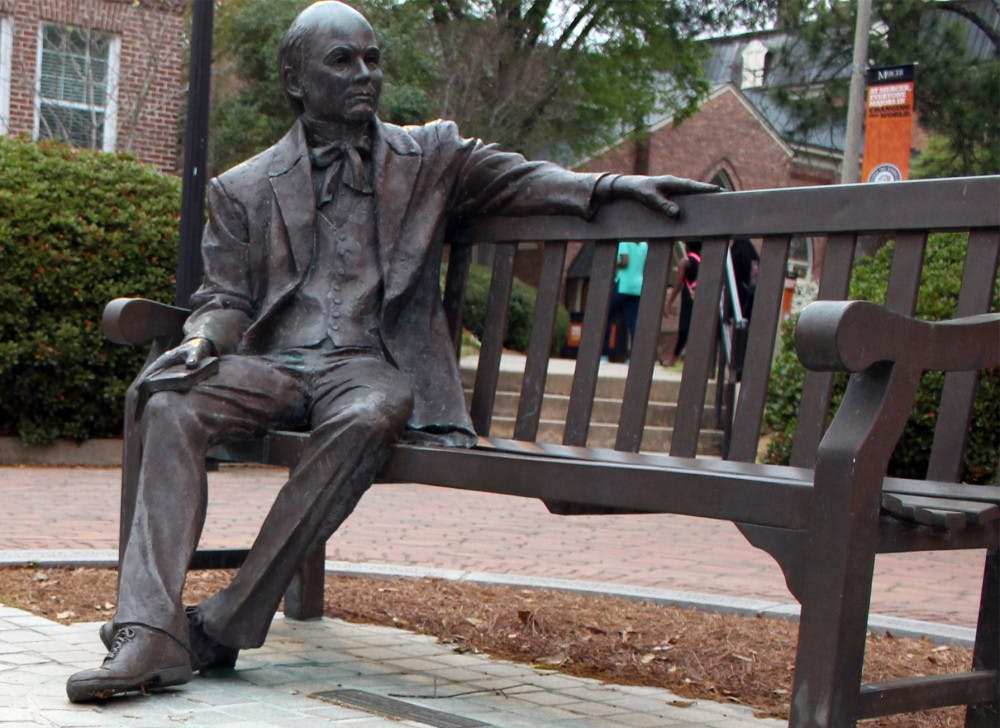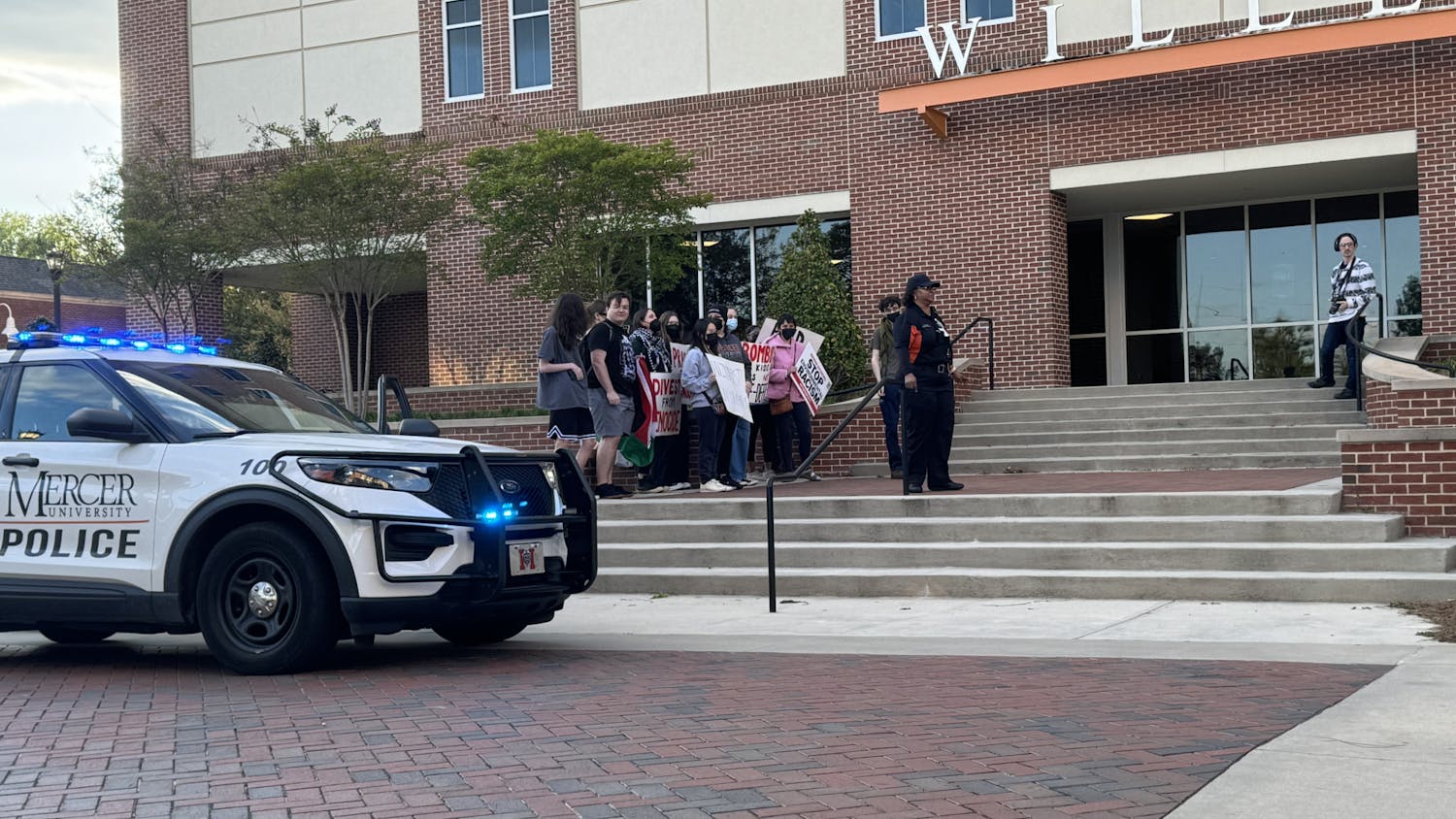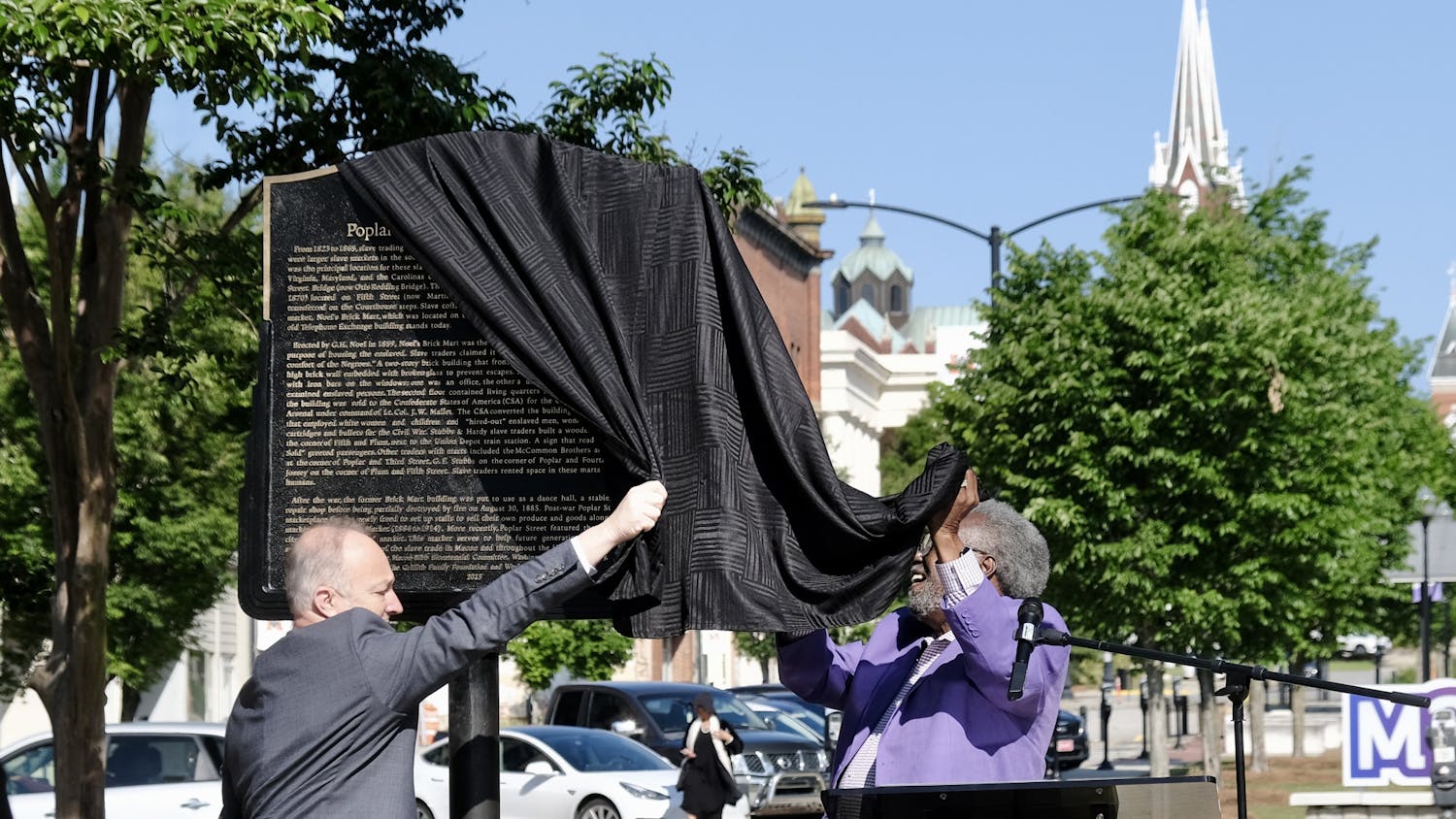If you flipped through the Mercer University catalog looking for classes to register for and noticed that the Christianity major wasn’t there anymore, don’t worry.
The Christianity major, complete with new courses, is still there, but under the name “religion.”
The major changed its name to religion at the beginning of July 2016, according to Dr. Richard Wilson, chair of the Columbus Roberts Department of Religion.
“The old Christianity major was a classic pre-seminary curriculum [so] the then-Christianity department began to talk about becoming a religion major,” he said.
Wilson said the change in name for the current religion department came after several curriculum changes that started almost 40 years ago.
The first change to the department was in the 1980s when a world religion course was offered along with the traditional Christianity courses.
World religions was just one course until 10 years ago.
“In 2007, we chose to divide the world religions class into two classes: western religion — which includes Judaism and Islam — and eastern religions, which includes the major religions that emerged in India, China and Japan,” Wilson said.
The western religions class is offered every other year, and will be offered during the 2017-2018 academic year.
Wilson said that for the second time in the course’s history, it will be taught by a local Rabbi and Imam.
“It's nice having a Jewish Rabbi teach the Judaism section and a Muslim Imam teach the Islam section,” Wilson said.
Another change to the department courses was the addition of another general education course in 2012.
As Mercer revised the course curriculum campus-wide, Wilson said he made a proposal to the then Christianity department to consider adding another general education course that focused on the three Abrahamic religions: Islam, Judaism and Christianity.
Wilson said he drafted the proposal, named the course “Beginning with Abraham” and sent it to be approved by several committees. It was approved and became the third religious heritage general education course, along with Old and New Testament.
“In the religion block, the current description says that these introductory courses should be primarily interested in the sacred text, or we could say, primary text,” he said. “So rather than reading about the Bible, you oughta read the Bible. Rather than reading about the Quran, you oughta read the Quran.”
After the past curriculum changes, Wilson said he began to raise the question of changing the name from Christianity to religion.
“I raised the issues with the faculty of this department and ultimately the president, the provost and the dean of the college of liberal arts, and we began quietly to address some changing issues in our world culture and also in our regional culture,” he said.
Along with change in July 2016, a fourth general education course entitled “Why religion matters” was added after another proposal from Wilson. The course is currently being offered in two sections this semester.
Wilson said the reason he proposed the changes to the department is because “there’s lots of opportunities and encouragements for the study of religion.”
His reasoning for the proposals also tie into the Baptist heritage of the university.
“The history of Baptists begins with activism for religious liberty,” he said.
Religious liberty is the ability to make or not to make a religious commitment, he said.
“I think it echos appropriately in the context of a university like Mercer that began as a Baptist and is still quite friendly to Baptists,” he said.
Wilson said he believes that by making the changes to the Christianity department, Mercer has made a good foundation for the students who want to study religion.
The changes made during the switch from Christianity to religion not only affect the future students who will study religion, but also affected the students who had already declared majors and minors in Christianity.
Bekah Fulton, a senior religion minor, said that students who had already declared a Christianity major or minor were given the choice to either continue being a Christianity major or minor or change to a religion major or minor.
“I decided to go with the transition and adopt a religion minor instead of keeping a Christianity minor,” she said. “I felt it was a more inclusive title, a better representation of my studies and I wanted to support the change from Christianity to religion.”
Fulton said that her time spent in the courses of the religion department has challenged her to think about why she believes what she believes.
She also said she and many of the students she has talked with appreciate the new, diverse, classes like eastern religions that were added to the general education courses.
“They appreciate this perspective,” she said. “They’re not being indoctrinated into a certain religion but they’re seeing such a popular religion through a new lens.”
Christianity major morphs into more inclusive religious studies

The Jesse Mercer statue sits as a reminder of Mercer’s Baptist heritage, which is an influence on the major name change from Christianity to religion.




